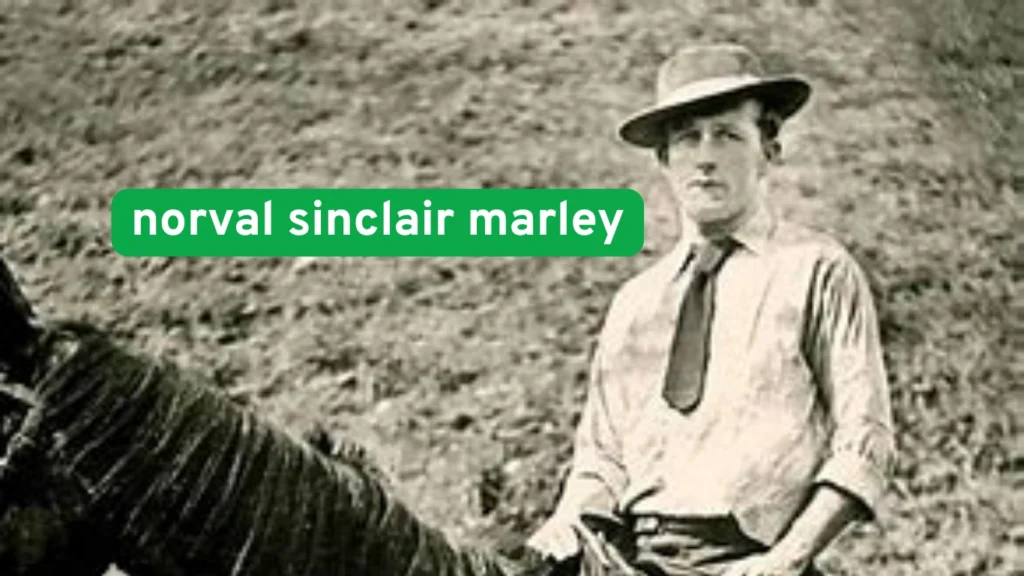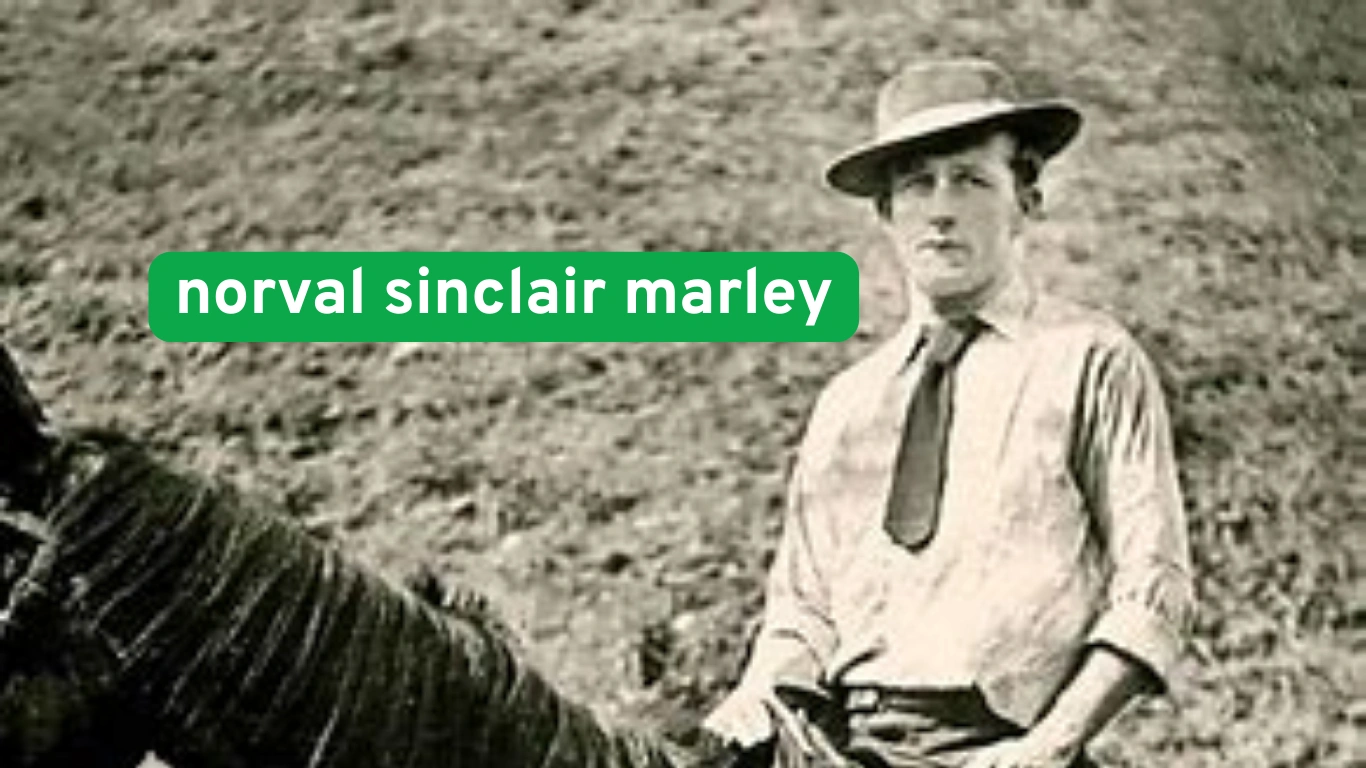Unveiling the Life of Norval Sinclair Marley: The Father of Bob Marley
Norval Sinclair Marley, although often overshadowed by the fame of his son, Bob Marley, played an essential role in the early life of the reggae legend. Born in 1882, Norval’s legacy is an integral part of the Marley story. As the father of one of the most influential musicians in history, his life and actions significantly impacted the shaping of Bob Marley’s identity, music, and message.

Early Life and Background
Norval Sinclair Marley was born in 1882 in the Clarendon Parish of Jamaica. His father, Albert Thomas Marley, was an Englishman hailing from Sussex, while his mother, Ellen Broomfield, was of Jamaican descent. Ellen’s lineage was of Syrian-Jewish origin, which gave Norval a unique cultural and ethnic background. Growing up in Jamaica, Norval experienced a blend of British colonial influence and Jamaican traditions. The social dynamics of the time were complex, with colonialism and racial tensions shaping the lives of many Jamaicans.
Norval’s early life in Jamaica exposed him to the contrasts between the local Jamaican culture and the British influence brought by his father. While some sources mention his family’s strong ties to the upper classes in Jamaican society, the true extent of his family wealth or status remains unclear. Despite these uncertainties, Norval’s upbringing was likely marked by both privilege and the racial tensions common in colonial Jamaica.
Military Service and the Title of “Captain”
One of the most intriguing aspects of Norval Sinclair Marley’s life was his connection to the military. He is often referred to as “Captain,” a title that has sparked much debate among historians and researchers. While it’s commonly believed that Norval served as a captain in the British Royal Marines, some suggest he may have been a private rather than a commissioned officer. The details of his military service remain somewhat ambiguous, with various sources offering conflicting accounts.
What is clear is that the title “Captain” became a significant part of Norval’s identity. During a time when titles and ranks were closely tied to social status, his use of the military title reflected his self-perception and his desire to assert authority and respect in the community. Whether or not he served as an official captain in the army, Norval’s connection to the military played a role in shaping his persona in the eyes of those around him.
Marriage to Cedella Booker and Family Life
In 1945, Norval Sinclair Marley married Cedella Booker, a Jamaican woman of Afro-Caribbean descent. At the time of their marriage, Cedella was only 18 years old, while Norval was approximately 64, creating a significant age gap between the two. This age difference, combined with racial dynamics in Jamaica, led to some societal disapproval of their relationship. Nonetheless, the couple’s union was the foundation of Bob Marley’s birth, which would later transcend beyond Jamaica to impact the world.
Their son, Robert Nesta Marley—better known as Bob Marley—was born on February 6, 1945, in Nine Mile, Saint Ann Parish. Bob’s birth marked the beginning of a cultural and musical revolution that would change the course of music history. The impact of Norval’s brief involvement in his son’s life, however, is complicated.
While Norval was physically absent for much of Bob’s upbringing, he provided some financial support to Cedella and Bob. Norval’s work required him to travel frequently, and it’s reported that he was not very involved in Bob’s day-to-day life. Nevertheless, the financial assistance he provided helped support Bob’s early years. As a result, Cedella raised Bob primarily as a single mother, with the influence of Norval being limited during Bob’s formative years.
Norval’s Impact on Bob Marley
Although Norval Sinclair Marley was not a central figure in Bob Marley’s early life, his influence cannot be overlooked. The legacy of Norval’s mixed heritage—half English and possibly part Syrian-Jewish—played a significant role in shaping Bob’s identity and worldview. This cultural blend shaped Bob’s music, infusing it with a diversity of influences that ranged from African, Caribbean, and Western cultures.
Bob Marley’s music is often celebrated for its universal message of peace, love, unity, and social justice. His ability to blend different musical styles, such as ska, rocksteady, and reggae, with lyrical themes of resistance and empowerment can, in part, be attributed to the multicultural heritage of his father. Norval’s background and Bob’s exposure to both his father’s English roots and his mother’s Afro-Caribbean culture played a crucial role in molding Bob’s identity as an artist.
Additionally, Bob Marley’s commitment to addressing social issues, especially those related to race, poverty, and inequality, can be partially traced back to the complex racial dynamics that shaped his family background. Although Norval was not present to provide constant guidance, his influence helped lay the foundation for Bob’s understanding of identity and struggle. This influence was particularly important as Bob Marley later used his music to speak to oppressed peoples and advocate for change.
The Final Years of Norval Sinclair Marley
Norval Sinclair Marley passed away in 1957, just over a decade before Bob Marley would rise to international fame. His death did not have a direct impact on Bob’s career, but it did mark the end of an era. By the time of Norval’s death, Bob was already a teenager, and his relationship with his father had been limited. Nonetheless, Bob’s recognition of his father’s influence, particularly in his music, was evident later in life.
Though Bob Marley would eventually rise to fame and become a global icon, Norval’s legacy remained a crucial part of the narrative. Bob would go on to become a voice for the oppressed, and his music would serve as a vehicle for social change worldwide. The recognition of his mixed heritage, including the influence of his father, Norval Sinclair Marley, was often referenced in interviews and songs.
The Marley Legacy: Norval’s Role in the Bigger Picture
Norval Sinclair Marley may not have been the central figure in Bob Marley’s life, but his contributions to the broader Marley legacy are undeniable. His role as Bob’s father, his mixed heritage, and his brief involvement in Bob’s early life helped shape the cultural backdrop against which Bob Marley would later create his music.
The family dynamic between Norval, Cedella, and Bob Marley reflects the complexities of identity, heritage, and social class in Jamaica during the 20th century. Norval’s life, though less documented than his son’s, is an integral part of the larger story of the Marley family. His influence on Bob, though indirect, can still be seen in the music that continues to inspire people around the world.
As Bob Marley’s fame grew, so too did the awareness of his roots. Norval Sinclair Marley’s story, while not as widely known, serves as a reminder of the deep cultural and familial ties that influence an individual’s journey. It is in understanding the lives of those who came before him that we gain a more complete picture of Bob Marley’s rise to fame and the messages he shared through his music.
Conclusion
Norval Sinclair Marley may not have been as publicly celebrated as his son, Bob Marley, but his role as the father of the reggae legend is significant. Through his mixed heritage and his brief yet impactful presence in Bob’s life, Norval laid the foundation for the creation of music that would transcend generations. Bob Marley’s legacy continues to inspire millions, and Norval’s story, though lesser-known, is an important part of that narrative.
In exploring Norval Sinclair Marley’s life, we gain a deeper understanding of the forces that shaped one of the most influential figures in modern music history. The Marley family’s story is one of resilience, complexity, and cultural fusion. And in the case of Norval, his legacy is not only defined by his role as a father but also by the heritage and identity he passed on to his son, whose music would change the world.
Other Articles







